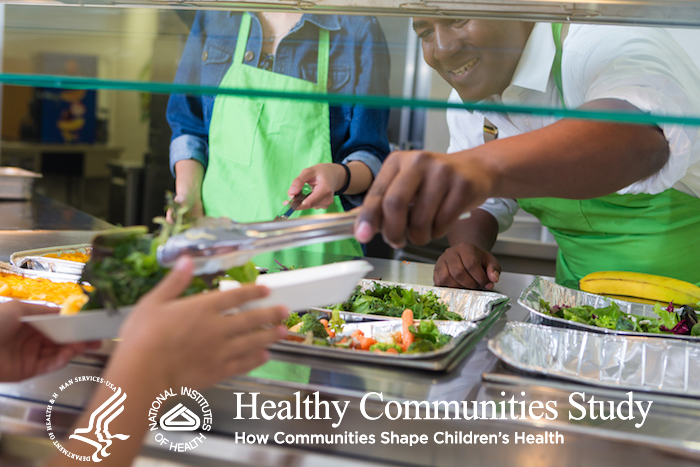National Healthy Communities Study

Obesity Prevention
The Center for Community Health and Development at the University of Kansas is part of a prestigious group of research entities that was awarded a $23 million grant to study community efforts to prevent childhood obesity.
The National Heart, Lung, and Blood Institute (NHLBI/NIH) awarded a five-year (2010 - 2015) grant to Battelle Memorial Institute, Columbus, Ohio—with sub-awards to scientific partners at the University of California-Berkley, University of South Carolina and KU—to examine what community interventions lead to improvements in childhood obesity. The research will draw on a national sample of approximately 300 communities and 30,000 children. The KU Center team leads the community measurement core, developing and assuring quality measures of what communities are doing to prevent childhood obesity.
Rates of childhood obesity are increasing dramatically in the United States. In response, many different federal agencies and private foundations are investing in community efforts to prevent childhood obesity.
But according to Stephen Fawcett, senior advisor of the KU Center for Community Health and Development and the Kansas Health Foundation Professor of Applied Behavioral Science, little is known about what community programs and policies are being implemented and their effects. “This unprecedented study will help us better understand what works in community efforts to prevent childhood obesity, and under what conditions they work” he said. “It will yield the largest data base of practice- and evidence-based community programs and policies for preventing childhood obesity.”
The KU Center's innovative approaches to measuring community programs and policies, and analyzing their impacts on population-health improvement, will be featured in the study. The community measurement core will assure systematic measurement of community efforts to prevent childhood obesity. The KU team will help conduct analyses of possible associations between community programs and policies, behavior changes and Body Mass Index (BMI) of children.
Primary goals of the study are to:
- Identify community programs and policies that help reduce childhood obesity rates to better inform public health practice and policy
- Identify associations between community programs/policies and impacts and outcomes with childhood obesity
- Communicate study results, including information on the most promising community program and policy approaches, using Web-based tools and reports, publications and conferences
The study is made possible by a funding consortium that includes multiple Institutes of National Institutes of Health (NIH), the U.S. Centers for Disease Control and Prevention (CDC), the Robert Wood Johnson Foundation (RWJF), and other private foundations. The National Heart, Lung, and Blood Institute (NHLBI) is the lead sponsor, with additional support from NIH’s National Institute of Child Health and Human Development, National Cancer Institute (NCI), National Institute of Diabetes and Digestive and Kidney Diseases (NIDDK), and the Office of Behavioral and Social Sciences Research.
The KU Center is one of 13 centers of the Life Span Institute, one of the largest research and development programs in the nation for translating scientific discoveries into practical applications for the human good.
KU Center's Healthy Communities Team:
Stephen Fawcett (sfawcett@ku.edu), Co-Investigator
Jerry Schultz (jschultz@ku.edu), Co-Invesigator
Vicki Collie-Akers (vcollieakers@kumc.edu), Co-Investigator